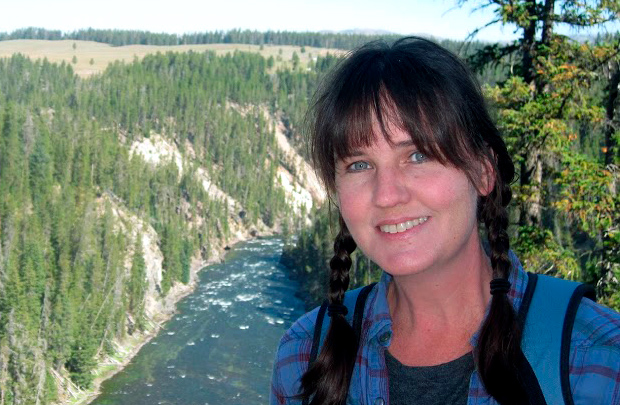
Leslie Haton has been working with children, teens, and people with developmental disabilities for more than two decades. She is currently a family support specialist. Leslie is also the mother of three children, the youngest of whom she adopted from foster care when he was 6 and is now 18.
A mother who Leslie works with suggested that we feature her as an Outstanding Caseworker, writing:
“From the moment I was directed to Leslie, I could tell she cared, really cared…Even when I get discouraged, she makes me feel better…She has adopted through foster care, too, so she knows what I’m going through. You can definitely tell she loves her job and cares for children and families.”
To say that Leslie is passionate about building families and helping children is an understatement! We talked with her about the lessons she’s learned and is sharing with families today.
You adopted a child from foster care and then became an adoption specialist for the same organization! Why?
Because I am thankful for the help that the agency I now work for provided my family when we were going through this adoption process, and I am passionate about family! When, 12 years after I adopted, the opportunity presented itself to help families, working with the same agency who helped us, I happily accepted.
As a parent, I’ve endured many storms—and also felt the sunshine after those storms. Being able to share my adoption journey and what I learned along the way to help others gives me a sense of accomplishment and peace.
You spent several years helping you son heal from past trauma. What have you learned?
So many things! After my husband and I adopted our son, I would spend hours and hours on the phone looking for services to help him. Now I know all about the resources that exist in our area and techniques for helping families find the support they need.
That kind of research is important, because you might have to try a lot of different therapies until you find one that works. One thing that my son responded well to was equine therapy—so much so that we adopted two miniature donkeys! I’m proud to say that our son graduated from high school this year and aspires to attend college, like his sister and brother before him.
I’ve also learned how important it is to be consistent in engaging with a child. They might push you away. And you do need to respect their wishes and simply let them be sometimes. But don’t let that go on for too long. Keep letting them know that you care.
And—very important—I learned that it’s OK to take care of myself—to accept offers of help and take a break sometimes.
What is your advice to people who are getting started?
Educate yourself about how trauma affects children so that you have a realistic picture and are prepared to search for therapists and other support services when the time comes.
Know that there will be challenges. There will be days that you wonder what you got yourself into. That’s normal. Five or ten years of trauma are not going to going away with hugs and kisses. Give them those, too! But also know that you need to be committed to being an advocate and finding the resources you need to help your child.
When you are completing your home study and inquiring about children, be honest about what you can handle. Know your limits—but also know that you can probably overcome them! I see that all the time with the families I work with. They rise to the occasion.
How has being the parent of a child who has experienced trauma changed you?
I’m a stronger, more outgoing person today. I’ve learned to be patient—and to be persistent! To let people know: “I’m here to advocate for my son’s needs, and you will listen.” I didn’t know that I could be a fighter like that!
Being a social worker is famously stressful. How do you stay healthy?
I personally find that my family, my faith, and my love of animals and nature give me strength. Taking a walk in the woods while listening to the birds, feeling the breeze and enjoying the silence…these things help me calm my mind and find my inner strength.
And of course, there is the importance of laughter and having a sense of humor! Some days can feel so heavy, and finding something to laugh about can make a world of difference. Laughter flowing through the house is undeniably a beautiful sound that spreads joy and warms the heart!
Thirdly, my husband and I try to find one thing daily for which to be thankful, especially when it’s been a really tough day. I truly believe that ending the day on a positive note promotes a restful night’s sleep, which is good for both the body and soul!
Read more about understanding trauma on our website.